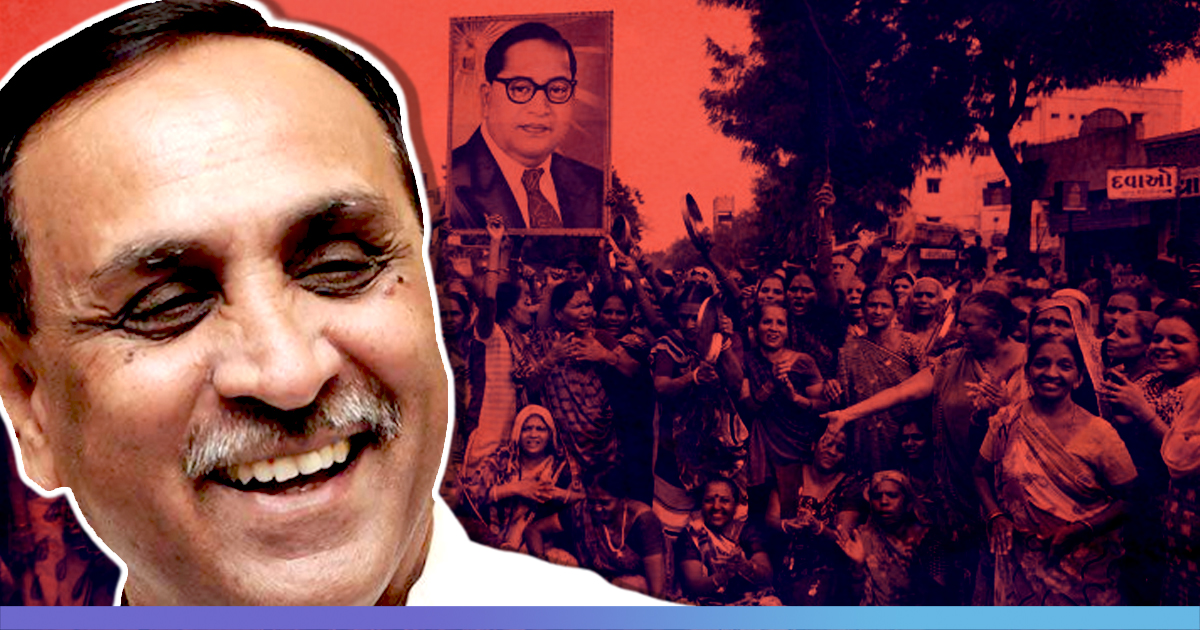Gujarat Chief Minister Vijay Rupani has suggested launching a campaign for promoting social harmony in 32 villages, where people from Dalit communities are living under police protection, reported The Indian Express.
On Wednesday (June 19, 2019), the CM put forward the advice during a meeting of the state-level vigilance and monitoring committee, which looks after the implementation of the Scheduled Castes and Scheduled Tribes (Prevention of Atrocities) Act.
The CM ordered the district collector, district superintendent of police and local leaders to take initiative for the campaign. He urged the concerned officials to make an effort to improve the situation of social harmony so that people from Dalit communities do not require police protection.
In the last year, the state government has paid compensation of Rs 16 crore to Dalit victims and Rs 2.84 crores to the victims from ST communities, stated a press release issued after the meeting.
The meeting was attended by Gujarat Deputy Chief Minister Nitin Patel, Leader of Opposition Paresh Dhanani, Social Justice and Empowerment Minister Ishvar Parmar, Education Minister Bhupendrasinh Chudasama, Principal Secretary (Social Justice and Empowerment Department) Manoj Aggarwal, Chief Secretary J N Singh and state DGP Shivanand Jha, among others.
Dalits In Gujarat
In the past decade, the number of cases registered under the Scheduled Castes and Tribes (Prevention of Atrocities) Act, 1989, in Gujarat, has risen by 36% – from 991 in 2006 to 1,355 in 2016. Whereas, during the same time, the conviction rate for the crime against SCs and STs have fallen by 2% and 7%, respectively, to 26% and 21%, according to the National Crime Records Bureau (NCRB) data.
According to a survey conducted by the Navsarjan Trust, an NGO that works with Dalits, reveals that 98 forms of untouchability are practised by ‘upper’ castes against Dalits, while 99 types of untouchability are practised within 32 sub-castes of Dalits.
Talking to the English daily, Leader of Opposition Paresh Dhanani said, “In 12 cases (out of 32 villages) the protection is given to individual Dalit families. In 20 (other) cases, entire Dalit mohallas have been provided protection.”
Dhanani while pointing out that more than 933 cases of violence against Dalits have been reported since October 2018, he suggested that the actions should be taken to ensure the disposal of over 10,000 pending cases in the state, registered under the Atrocity Act.
Also Read: Dalits In Gujarat Village Allege Social Boycott For Refusing To Dispose Animal Carcasses











